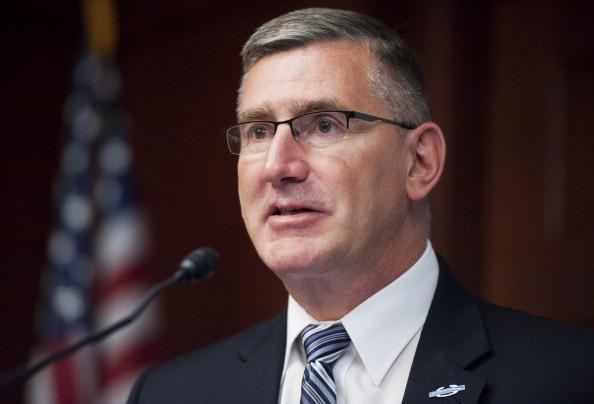The most striking thing about Montana Democratic Sen. John Walsh and his apparent plagiarism is what he and some of his defenders have said about it.
“If he did it, you know, slap on the wrist,” said Roy Savage, the adjutant at the Ole Beck Veterans of Foreign Wars Post 209 in Missoula. “Who hasn’t done it? I did it myself when I was in college and I was dealing with PTSD. Anybody who says they haven’t done it is a liar.”
Voters Decide
Well, that is not the way I see it. Plagiarism is a big deal. Some politicians survive it, some don’t. That’s up to the voters. But it is a serious ethical lapse. It is theft. Savage said a sensible thing. People return their representatives to offices after terrible scandals, sometimes. When they do that, it is often because that person holds positions the voters agree with. That is a civic-minded reason to forgive a scandal. Savage, who also advocates for veterans and coordinates the Heroes Therapeutic Outreach Program, said the issue shouldn’t overshadow what each candidate stands and fights for.
But the way of excusing academic malfeasance sticks in my craw.
I had a nightmare about plagiarism, oddly enough, last night. In the dream, I flat out, bold as brass, put my name on a whole story someone else wrote. (I would never. Don’t know what the dream was trying to convey. Perhaps it was a warning about quesadillas, guacamole, and salsa.)
Wholesale credit taking is not the way plagiarism is usually done. It’s usually a little pasting here, a little paraphrasing there, a few musical passages here, a plot segment there.
It can be unintended, which is what the unfortunate Walsh is saying about his strategy research project written in 2007 for the U.S. Army War College. He was only two years out from active duty in Iraq.
He said he was experiencing symptoms of post-traumatic stress disorder that included nightmares, anxiety, and sleeplessness. He was seeing doctors and taking medication for those problems, which he said he has since worked through.
Adding to Stigma
At the time, he said, his “head was not in a place very conducive to a classroom and academic environment.”
“I don’t want to blame my mistake on PTSD, but I do want to say it may have been a factor,” Walsh told The Associated Press on Wednesday.
This is almost more dismaying than the plagiarism.
PTSD has enough inaccurate, undeserved stigmas without somebody linking it with plagiarism.
According to the National Institutes of Mental Health, PTSD symptoms are:
1. Re-experiencing symptoms, such as flashbacks, nightmares, and scary thoughts
2. Avoidance symptoms, such as staying away from places or situations that trigger memories of a trauma, emotional numbness, being unable to remember the trauma, and severe depression and guilt
3. Hyperarousal symptoms, like being easily startled, feeling tense, having difficulty sleeping, and/or having angry outbursts
Not one of these symptoms would have any relationship to doing something dishonest, or something careless, if that is what it was.
Curable, Transient
The thing about PTSD is that it is curable. People can be resilient after having it. Not everyone exposed to trauma develops it. It is often transient. A person who is working through it can actually function at a pretty high level, though his or her personal life is most likely to suffer.
So I hate that the acronym is slung around nearly whenever veterans are mentioned, and I hate that people seem to think a person with the condition is some kind of lit fuse. A person with PTSD is more likely to be the talented sales maven at your office who has dark circles under her eyes than to be a Travis Bickle, the dangerous madman in “Taxi Driver.”
So, respected Sen. Walsh, wish you had not invoked PTSD that way. Sorry you developed it in the course of serving our country. Glad you have healed from it, as you said after maladroitly seeming to blame your mistake on it.
He has tried to clarify what he said about the condition.
Walsh later repeated that he was not blaming PTSD for what he characterized as an “unintentional mistake” in the citations in his research project.
“In no way did any of that have anything to do with what I did at the Army War College,” he told Yahoo News in an interview posted Friday.
But every time people say ignorant things about mental illness in general, and PTSD in particular, it does not help.
The Associated Press contributed to this report.





